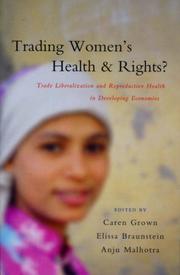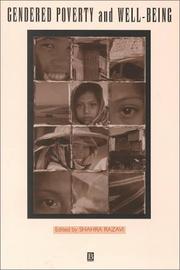| Listing 1 - 3 of 3 |
Sort by
|
Book
ISBN: 2234010071 9782234010079 Year: 1979 Publisher: Place of publication unknown Stock
Abstract | Keywords | Export | Availability | Bookmark
 Loading...
Loading...Choose an application
- Reference Manager
- EndNote
- RefWorks (Direct export to RefWorks)
BMLIK
moederschap --- Family size --- Poor --- Pregnancy --- 314.3 --- -Pregnancy --- Gestation --- Conception --- Physiology --- Reproduction --- Disadvantaged, Economically --- Economically disadvantaged --- Impoverished people --- Low-income people --- Pauperism --- Poor, The --- Poor people --- Persons --- Social classes --- Poverty --- Size of families --- Family planning --- Vruchtbaarheid. Nataliteit --(demografie) --- Economic conditions --- 314.3 Vruchtbaarheid. Nataliteit --(demografie) --- Age group sociology --- Demography --- Sociology of minorities --- Sociology of the family. Sociology of sexuality --- France --- Poor - France --- Children --- Motherhood --- Book

ISBN: 1848137923 184813178X 1281216208 9786611216207 9781848131781 9781281216205 1842777742 9781842777749 1842777750 9781842777756 1350223689 Year: 2006 Publisher: London New York Zed Books
Abstract | Keywords | Export | Availability | Bookmark
 Loading...
Loading...Choose an application
- Reference Manager
- EndNote
- RefWorks (Direct export to RefWorks)
This work synthesises research from various disciplines to explore how international trade liberalisation affects reproductive health and rights, reviewing both direct and indirect linkages and using case studies from Bangladesh, Sri Lanka, Tanzania and Mexico.
Free trade --- Women --- Women's rights --- Human females --- Wimmin --- Woman --- Womon --- Womyn --- Females --- Human beings --- Femininity --- Health and hygiene --- Sociology of the family. Sociology of sexuality --- Foreign trade. International trade --- Developing countries: economic development problems --- Hygiene. Public health. Protection --- Developing countries --- Reproductive Rights --- Women's Rights --- Developing Countries. --- Reproductive Health Services --- Women's Health --- Human rights --- Gender studies: women --- Economics --- Birth control, contraception, family planning --- Developing Nations --- Least Developed Countries --- Less-Developed Nations --- Third-World Nations --- Under-Developed Nations --- LMICs --- Less-Developed Countries --- Low Income Countries --- Low and Middle Income Countries --- Lower-Middle-Income Country --- Middle Income Countries --- Third-World Countries --- Under-Developed Countries --- Countries, Middle Income --- Countries, Third-World --- Country, Least Developed --- Country, Less-Developed --- Country, Low Income --- Country, Lower-Middle-Income --- Country, Middle Income --- Country, Third-World --- Country, Under-Developed --- Developed Country, Least --- Developing Country --- Developing Nation --- Least Developed Country --- Less Developed Countries --- Less Developed Nations --- Less-Developed Country --- Less-Developed Nation --- Low Income Country --- Lower Middle Income Country --- Lower-Middle-Income Countries --- Middle Income Country --- Nation, Less-Developed --- Nation, Third-World --- Nation, Under-Developed --- Third World Countries --- Third World Nations --- Third-World Country --- Third-World Nation --- Under Developed Countries --- Under Developed Nations --- Under-Developed Country --- Under-Developed Nation --- economics. --- Reproductive health --- Trade --- International --- Migration --- Labour market --- Reproductive rights --- Employment opportunities --- Book --- Globalization --- Economy

ISBN: 0631217932 Year: 2000 Publisher: Oxford Blackwell
Abstract | Keywords | Export | Availability | Bookmark
 Loading...
Loading...Choose an application
- Reference Manager
- EndNote
- RefWorks (Direct export to RefWorks)
Na een periode waar de aandacht , op economisch en politiek vlak, vooral uit ging naar stabilisatie en groei, is er terug aandacht voor het probleem van de mondiale armoede. Het werd op de agenda van verschillende wereldconferenties geplaatst en betekende ook een verschuiving in het ontwikkelingsbeleid. Het resultaat daarvan was een nieuw armoedebeleid dat als basisprincipe een arbeidsbevorderende groei voorstaat met uitbanning van sociale uitsluiting als bijkomend aandachtspunt. De relatie tussen vrouwen en armoede is volgens de auteur nog niet voldoende bestudeerd. De sociale ongelijkheid tussen mannen en vrouwen wordt daarbij wel eens uit het oog verloren. Deze ongelijkheid zorgt ervoor dat vrouwen niet altijd greep hebben op belangrijke beslissingen die hun leven bepalen., zoals de beslissing over het aantal kinderen bijvoorbeeld. Het negeren van deze elementen bij het bepalen van indicatoren van armoede bemoeilijkt een effectief ontwikkelingsbeleid.
Poor --- Poverty --- Social indicators --- #SBIB:316.346H20 --- #SBIB:316.8H15 --- Indicators, Social --- Quality of life --- Social history --- Economic indicators --- Social accounting --- Social prediction --- Destitution --- Wealth --- Basic needs --- Begging --- Subsistence economy --- Disadvantaged, Economically --- Economically disadvantaged --- Impoverished people --- Low-income people --- Pauperism --- Poor, The --- Poor people --- Persons --- Social classes --- Sex differences --- Positie van de vrouw in de samenleving: algemeen --- Welzijns- en sociale problemen: sociale ongelijkheid en armoede --- Economic conditions --- Sociology of the family. Sociology of sexuality --- National wealth --- Developing countries --- Gender --- International --- Book --- Demography --- Globalization --- Empowerment
| Listing 1 - 3 of 3 |
Sort by
|

 Search
Search Feedback
Feedback About
About Help
Help News
News